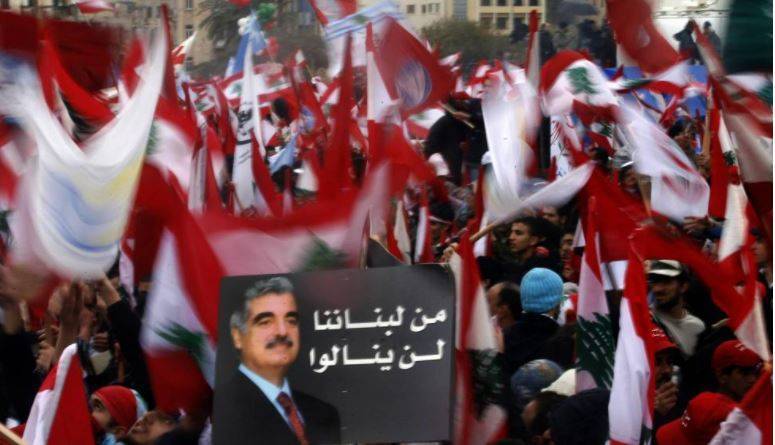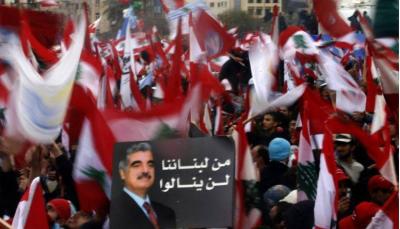The parliamentary elections represent the most important gateway to rid the country of the ruling authority, thus every Lebanese component is directly concerned. The Grand Mufti of the Republic, Abdul Latif Derian, was firm when he urged Sunni citizens to vote in large numbers and not to boycott the elections, as abstaining would be futile. The Mufti is a keen observer of the balances and upcoming deadlines, wanting to avoid a repeat of the Christians' experience in the 1992 elections, especially since the current circumstances are entirely different from what the Christian community previously endured. Many heard the Mufti's call after it became clear to every Sunni candidate and voter that the biggest beneficiaries of a boycott and "staying home" would be Hezbollah's allies on the Sunni scene. Meanwhile, a portion of the Sunni community, led by businessman Bahaa Hariri and some MPs aligned with the "Future" movement, had already made their decision to participate in the elections, regardless of the stance of President Saad Hariri and the Mufti.
Thus, on the 17th anniversary of the Independence Intifada, the Sunni arena transcended Saad Hariri's decision to abstain and became central to confronting Hezbollah's project. Those who thought that the Sunnis had surrendered to the forces of de facto power will realize they are mistaken and that the ballot boxes will not spare anyone who has placed Lebanon at the heart of the "resistance" axis and disrupted its relations with Arab countries.
In this context, the Sunni forces that decided to participate under the banner of supporting the state and fighting against the "statelet" project include:
First: Businessman Bahaa Hariri, who has intensified his activities following the October 17 uprising and supported the Lebanese people's revolution and the positions of Maronite Patriarch Cardinal Mar Bechara Boutros Al-Rahi, who advocates for neutrality and confronting the statelet project. Bahaa Hariri has gained supporters throughout all Sunni regions and is working within a national project that transcends regions and sects. If he is present on the ground according to a well-thought-out plan, he will continue his movement towards forming a bloc to confront the statelet project, considering various options including forming lists under the banner "Together for Lebanon" in all regions, especially in Tripoli, Akkar, Beirut, Mount Lebanon, and Bekaa.
Second: President Fouad Seniora and the veterans of the "Future" movement, as resignations have started to emerge from the "Blue Track." Seniora has sufficient experience in confronting Hezbollah; he led the first government formed after the Independence Intifada in 2005 and remained besieged in the Serail without succumbing to the party's desires. He was also the head of the Future parliamentary bloc between 2009 and 2018, filling the vacuum created by Saad Hariri's absence from Lebanon between 2011 and 2016. Thus, he forms a team consisting of some MPs and cadres from the Future movement.
The third group is that which falls under the umbrella of the revolution and civil society, and this group has begun forming lists in all Sunni and mixed areas, with a clear anti-illegal arms speech and demands for reform. Ironically, MP Osama Saad, previously considered an ally of Hezbollah, refuses to ally with the ruling parties, including Hezbollah, indicating that the party's battle will not be easy in Sunni areas.
Eyes remain on the Sunni scene, waiting for Bahaa Hariri's return to Lebanon and his support for the "Together for Lebanon" lists while emphasizing that he is not only on the front lines of the confrontation as a Sunni but as a national figure who will not back down. On the other hand, there is anticipation for the future interaction with Seniora's movement and whether Saad Hariri will confront him or let the game proceed after his decision to boycott, noting that some cadres of the Future movement work to serve Hezbollah's Christian allies, such as the Marada Movement, particularly in the northern third district.
The most important thing is the decline in the popularity of Sunni figures loyal to Hezbollah after the October 17 uprising. Therefore, the Sunni popular decision to confront is clear, as this community was the backbone of March 14. The waiting remains for the crystallization of the form of lists, even though each Sunni group is fighting its battle against Hezbollah without coordination.




